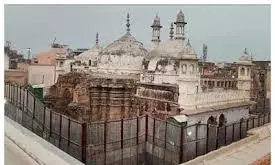
Supreme Court restricts new suits on religious sites until further hearing
text_fieldsThe Supreme Court of India on Thursday directed trial courts nationwide to refrain from admitting or issuing orders on cases challenging the ownership or title of religious places of worship.
The directive was issued by a bench led by Chief Justice of India (CJI) Sanjiv Khanna, during a hearing on multiple petitions contesting the Places of Worship (Special Provisions) Act, 1991. The Act aims to preserve the religious character of places of worship as they stood on August 15, 1947, effectively barring legal challenges to alter their status.
The Supreme Court instructed that no new suits related to this matter should be registered, and no interim or final orders, including survey-related directions, should be issued in existing cases until the next hearing. Additionally, the Centre has been given four weeks to file its response to the petitions.
The petitions, including one filed by advocate Ashwini Kumar Upadhyay, argue that the 1991 law unjustly prevents Hindus, Jains, Buddhists, and Sikhs from reclaiming religious sites allegedly encroached upon during historical invasions. The petitioners claim the Act infringes upon their constitutional rights and undermines justice for religious communities whose sacred spaces were altered or repurposed.
Muslim organisations, including the All India Muslim Personal Law Board (AIMPLB) and the Jamiat Ulama-i-Hind, oppose these petitions, arguing that the 1991 Act safeguards the principles of secularism and fraternity enshrined in the Constitution. They contend that the petitions, masquerading as public interest litigation, challenge a law integral to maintaining communal harmony and protecting the basic structure of the Constitution.
The Supreme Court's directive aims to prevent legal chaos while ensuring that the issue is thoroughly examined in light of constitutional values.






















